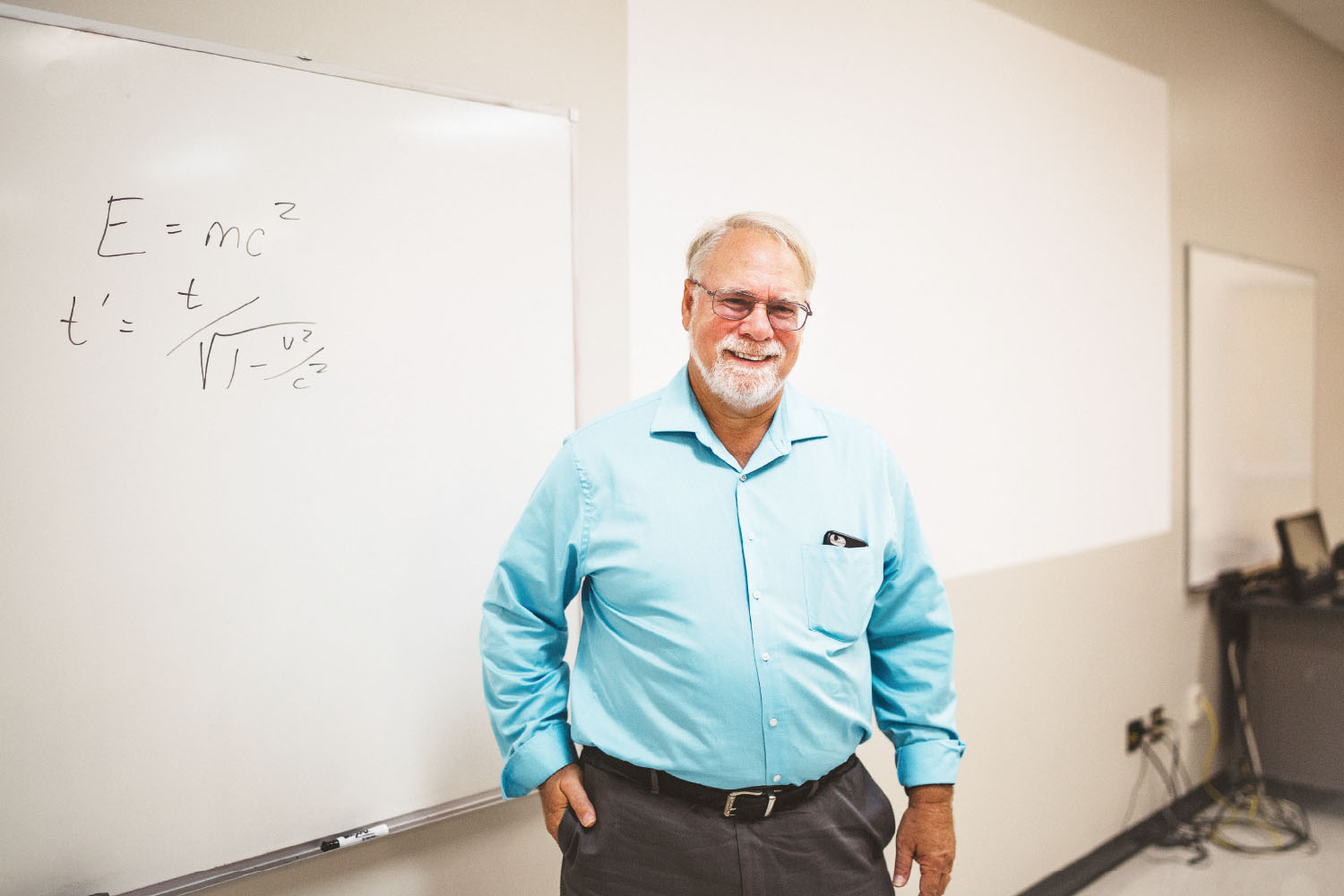
Mark Whipple will emote
like Einstein in record time.
Photo by Rachel Pressley
You may spend a lot of time dealing with the quirks of your relatives, but then there’s Relativity, which is full of quirks that seem nonsensical enough to make your relatives appear perfectly sane. Enter Mark Whipple, who taught physics and astronomy for 33 years and will be leading a three-part “Relativity For Anybody” course starting this month at Blue Ridge Community College’s Center For Lifelong Learning. The series of classes is meant to give lay people a basic understanding of Einstein’s famous theories about Special and General Relativity. He offered Bold Life a glimpse of enlightenment.
What’s the difference between these two theories?
The theory of Special Relativity, published in 1905, is “special” in that it deals only with cases involving constant velocity motion. Basically it claims that any observer moving at a constant velocity has no absolute way of distinguishing between that state and being at rest. General Relativity, which came about ten years later, is “general” in that it concerns all motion, including [not only constant but] accelerated motion. Because you can “feel” accelerated motion, the only way to accept that all motion is purely relative is to include gravity as part of the situation.
But it still seems to us lay people that the theory is separate from our daily experience. Why is Relativity relevant to our daily lives?
It may not change how we go about our everyday activities, but it does affect things that we may not realize. One immediate example is that GPS systems must take into account the relativistic time difference between the satellites in orbit and automobiles on the ground. Without correcting for this difference, there would be very noticeable errors in distances and times.
What tools do you use to help make Relativity comprehensible to a non-scientific audience?
The first two-hour session doesn’t deal with Relativity at all. It describes only the classical physics known at the time, just before Einstein. Then the following week uses simple examples and diagrams to describe the “crazy” results of experiments — results that seemed impossible from a classical standpoint. I remember clearly my own confusion the first time I learned about Relativity, and how I assumed the teacher was explaining it so poorly because what he was actually saying couldn’t possibly be true. I’ve found the hardest part of learning basic Relativity theory is not so much understanding it as believing it.
Do Relativity and Quantum theory complement each other, or are they contradictory?
They don’t contradict each other so much as ignore each other, because they deal with such separate environments. Relativity deals with mostly very large things — planets, stars, galaxies and motion near the speed of light — while Quantum Mechanics deals with tiny things like atoms and elementary particles.
Will we ever arrive at a Grand Theory Of Everything?
My own belief is there’s no such thing. The universe has a complexity that keeps us exploring further, but we’ll never reach a final answer. The well has no bottom. It’s like the elderly lady who believed that a flat Earth was supported by a giant herd of enormous elephants, and when she was asked what was supporting those animals she triumphantly claimed it was “elephants all the way down.”
“Relativity for Anybody” by Mark Whipple will be offered in four consecutive Monday sessions November 19 through December 10, from 10am to noon, sponsored by Blue Ridge Center for Lifelong Learning at Blue Ridge Community College (Room 122 in the Continuing Education Building). The course costs $50 for BRCLL members, $60 for non-members. For more information, visit wbrcll.com.



